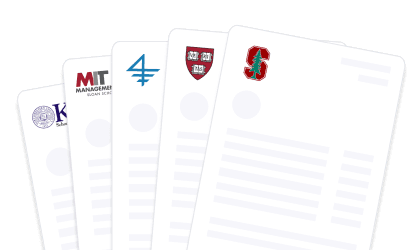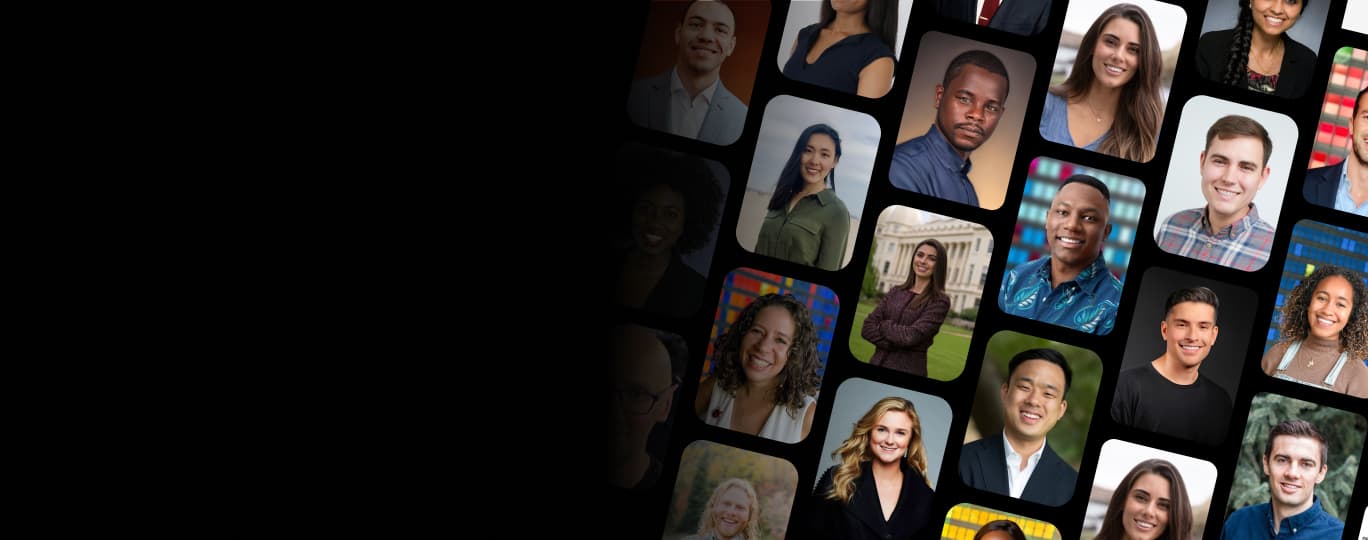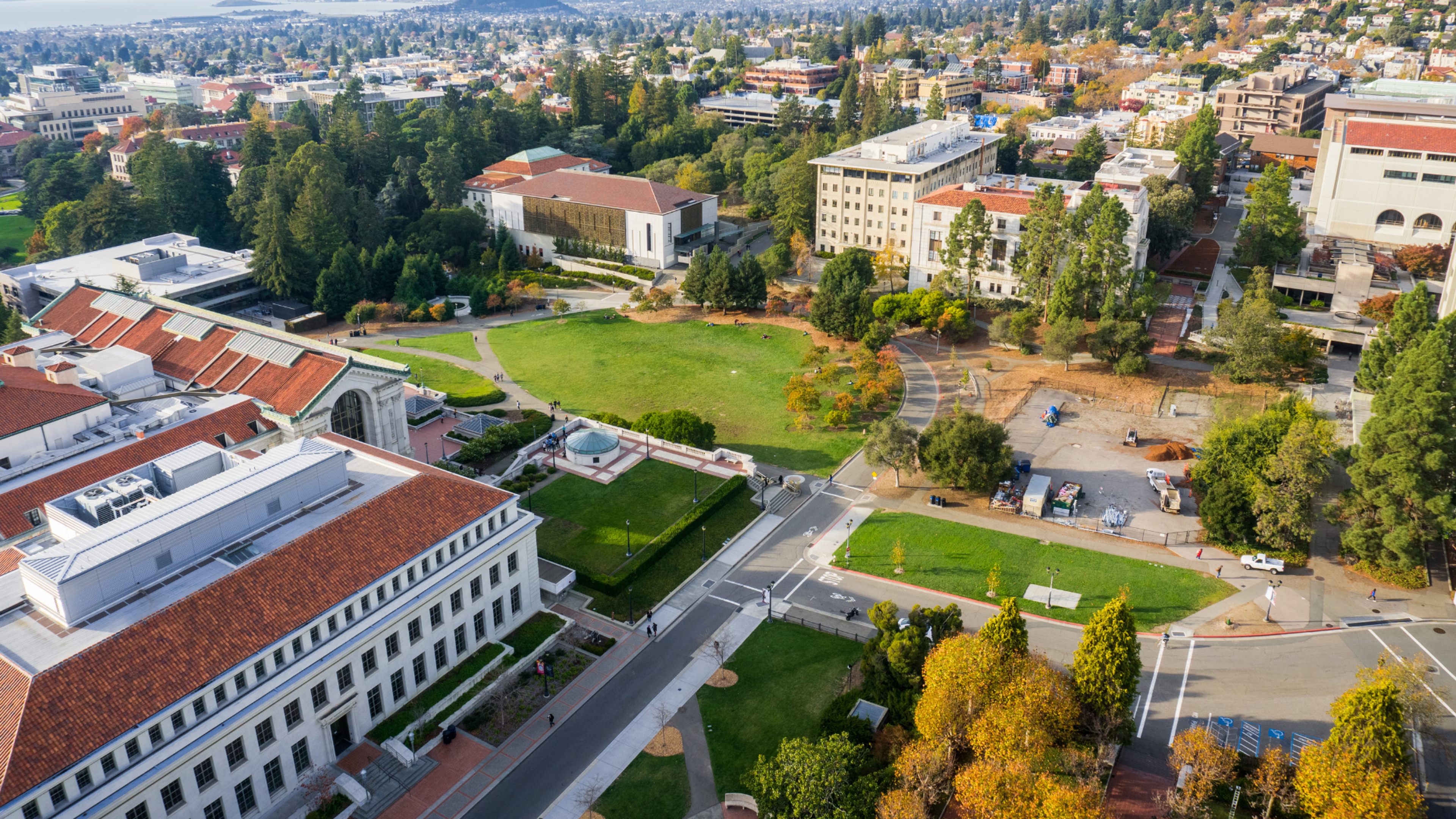The 10 Best Colleges for Computer Science
Computer science programs are becoming increasingly popular due to entry-level opportunities and job demand. Here is our guide to the best colleges for CS, to help inform your college search and applications.
Posted June 13, 2025

Join a free event
Learn from top coaches and industry experts in live, interactive sessions you can join for free.
Table of Contents
whoComputer science programs are becoming increasingly popular due to the relatively high-income entry-level opportunities and job demand. This list of the top colleges for computer science comes from US News, Niche, and College Factual. For students that know they want to pursue a career in computer science, knowing the strength of a school’s program is important, but it is just one factor. There are many other things to consider when deciding on a college including location, size, cost, and more.
Are you currently preparing to apply to or applying to college? Here are some free resources to get you started:
- The ACT vs. the SAT: Which to Take and How to Ace Both
- What AP Test Scores do Colleges Accept?
- How to Write a College Application Resume
If you’d prefer to work with a coach for one-on-one, personalized feedback and advice, browse our world-class, vetted undergraduate coaches here.
1. Massachusetts Institute of Technology
MIT’s computer science program, known as EECS (Electrical Engineering and Computer Science), is one of the largest undergraduate programs at the university. The curriculum is designed to be flexible, integrated, and hands-on. Classes will include labs, teamwork, independent projects, and research. Most of the five majors offered in the program begin with introductory classes to increase students’ knowledge of the fundamentals. They will then specialize and move into advanced courses through which they’ll be able to tailor their degree program to their interests and goals.
EECS Majors:
- Electrical Science and Engineering (6-1)
- Electrical Engineering and Computer Science (6-2)
- Computer Science and Engineering (6-3)
- Computer Science and Molecular Biology (6-7)
- Computer Science, Economics, and Data Science (6-14)
- Computation and Cognition (offered by the Department of Brain and Cognitive Sciences)
- Urban Science and Planning with Computer Science (offered by the Department of Urban Studies and Planning)
Post-Graduation Employment Statistics:
- % Graduates who are going to work in Information/Computer Technology: 28%
- Average Salary for Bachelor’s: $104,617
- Average Salary for Information/Computer Technology: $120,383
- Average Sign-On Bonus: $29,147
2. Carnegie Mellon University
CMU offers several different majors in computer science. The traditional CS degree combines knowledge of the fundamentals through a core curriculum and specialization through a required minor. The degree also offers plenty of flexibility, both within the CS discipline and in science and humanities courses. It attempts to provide students with a well-rounded curriculum of mathematics and probability, as well as practical skills like building and maintaining computer systems.
CMU CS Majors:
- Artificial Intelligence
- Computational Biology
- Computer Science
- Human-Computer Interaction
- Computer Science & the Arts
- Music and Technology
Post-Graduation Employment Statistics:
- Average Salary for School of Computer Science: $125,845
- Top Employers: Facebook/Meta (16), Amazon (14), Google (8), and Microsoft (7)
3. Stanford University
The computer science department at Stanford was one of the first collegiate programs founded in 1965. The curriculum is based on six core classes that every CS student is required to take. Then, students are given the opportunity to pick a track in which to specialize, which consists of four or five classes, and will round out their education with several elective courses. The program is designed to prepare students for careers in a wide variety of areas, including law, government, the corporate sector, and graduate degrees.
CS Major Core Classes:
- Programming Abstractions
- Computer Organization and Systems
- Principles of Computer Systems
- Mathematical Foundations of Computing
- Introduction to Probability for Computer Scientists
- Data Structures and Algorithms
CS Tracks:
- Artificial Intelligence
- CS Theory
- CS Systems
- Human-Computer Interaction
- Graphics
- Information
- Biocomputation
- Unspecialized
- Individually Designed
Post-Graduation Employment Statistics:
- % BS Graduates in Engineering/Technology: 22%
- Employers: Adobe, Facebook, Google, HP, LinkedIn, Lyft, PayPal, Walmart, Uber
4. California Institute of Technology
The CS major at CalTech provides students with a strong foundation in mathematics and algorithms and access to research for a broad range of applications. There is a lot of flexibility built into the major through a student-led capstone project and specialized tracks to choose from. The Summer Undergraduate Research Fellowships (SURF) program gives students real-world experience and the ability to apply computational thinking to a specialized area of interest.
Areas of Specialization:
- Quantum and Molecular Computation
- Parallel and Distributed Computation
- Theory of Computation
- Information Theory
- Machine Learning and Applications
- Computational Economics
- Computer Vision
- Computer Graphics
- Discrete Differential Geometry
- Networking and Power Systems
5. Georgia Institute of Technology
Georgia Tech prepares its students for a career in CS through a combination of a solid foundation in CS principles and specialization in a specific area. It teaches innovation and problem-solving skills so that graduates can enter the workforce confidently and become global leaders. All CS majors are required to take a core curriculum and can then customize their degree by choosing one of eight threads.
Core Requirements:
- 1 Wellness Course
- 12 Humanities Credits
- 15 Mathematics Credits
- Differential Calculus
- Integral Calculus
- Linear Algebra
- Intro to Multivariable Calculus
- Applied Combinatorics
- 1 Probability and Statistics Course
- 1 CS Ethics Course
- 12 Lab Science Credits
- 1 Junior Design Requirement
CS Threads:
- Devices
- Info Internetworks
- Intelligence
- Media
- Modeling and Simulation
- People
- Systems and Architecture
- Theory
Post-Graduation Employment Statistics:
- CS Job Offer Rate: 89.3%
- CS Median Salary: $100,981
- CS Median Bonus: $15,750
6. Harvard University
The computer science undergraduate degree at Harvard was designed for optimal flexibility. Students can combine their degree coursework with classes from other fields, including linguistics, psychology, economics, mathematics, physics, and more. The core requirements include fourteen, four-credit courses in math, computer software, theoretical computer science, and other CS areas. For students who are eligible for “Advanced Standing” because of AP exam scores, there is a Bachelor of Arts/Master of Science joint degree program through which they can earn a graduate and undergraduate degree in four years. In 2020, there were 279 students enrolled in the CS degree program with 80 pursuing joint concentrations with CS and another field.
First-Year CS Courses:
- Introduction to Computer Science
- Systems Programming and Machine Organization
- Introduction to Algorithms and their Limitations
- Introduction to Theoretical Computer Science
- Computational Thinking and Problem Solving
- Abstraction and Design in Computer Science
- Discrete Mathematics for Computer Science
- Data Structures and Algorithms
7. Princeton University
Princeton emphasizes the value of computing in many different modern careers and as such, it requires every undergraduate to take at least one CS course. The computer science department offers two different majors: an A.B. and B.S.E. There are a few core requirements but most of the time is spent on customized coursework depending on the student’s personal and career goals. Many of the courses and projects are interdisciplinary to give students the ability to apply computational skills to a wide range of areas.
CS Prerequisites:
- General Computer Science (COS 126)
- Introduction to Programming Systems (COS 217)
- Algorithms and Data Structures (COS 226)
Area-Focused Paths:
- Applications
- Systems
- Theory
- Artificial Intelligence and Machine Learning
8. University of California–Berkeley
UC Berkeley offers two paths for a computer science education. Students can apply for the Electrical Engineering and Computer Science (EECS) major in the College of Engineering or they can enter the College of Letters and Sciences after attaining the minimum GPA. The former track is best for individuals who prefer to take more engineering classes and are interested in hardware and it results in a BS degree. The latter leads to a BA degree and is better suited for students who’d like to take more humanities and social sciences courses. Both tracks offer the same CS content.
BS in Computer Science Degree Requirements:
- Designing Information Devices and Systems I
- Designing Information Devices and Systems II
- The Structure and Interpretation of Computer Programs
- Data Structures
- Machine Structures
- Discrete Mathematics and Probability Theory
- Calculus: Math 1A & 1B
- Multi-Variable Calculus
- Two-Course Physics Sequence
- Natural Science Course
- Four-Unit STEM Elective
- 40 Units of Engineering Courses
BA in Computer Science Degree Requirements:
- The Structure and Interpretation of Computer Programs
- Data Structures
- Discrete Mathematics and Probability Theory
- Calculus: 1A & 1B
- Linear Algebra and Differential Equations or Designing Information Devices and Systems I
- Designing Information Devices and Systems II
- Machine Structures
- One Design Course
- Non-CS Technical Electives
9. Cornell University
Students interested in computer science at Cornell can major in either the College of Engineering or the College of Arts & Sciences. Both teach algorithms, programming languages, operating systems, theory of computation, and data structures. Electives offer specialization in a wide variety of areas including artificial intelligence, computer graphics, computer vision, scientific computing, networks, cryptography, and databases, among others.
CS Course Requirements:
- Calculus Sequence (Math 1110-1120 and Math 1910-1920-2940)
- Introductory Programming
- Five-Course CS Core
- CS 2800
- CS 3110
- CS 3410
- CS 4410
- CS 4820
- Three CS Electives
- CS Practicum/Project
- Three Technical Electives
- Three External Specialization Credits
- Three Major-Approved Electives
10. University of Illinois–Urbana Champaign
The undergraduate degree in computer science at UIUC is offered by the Grainger College of Engineering. Those in this program can also choose to pursue a five-year Bachelor’s/Master’s joint degree program. There are other CS degree options available in other schools that change the focus of coursework, though the core CS classes remain the same. The programs prepare students for a career in a wide variety of fields, including software design, software development, advertising, music, and more.
CS Degree Options:
- BS in Computer Science
- BS in Mathematics & Computer Science
- BS in Statistics and Computer Science
- CS + X
- CS to Advertising
- CS + Astronomy
- CS + Economics
- CS + Philosophy
- Etc..
Department of Computer Science Requirements:
- CS 100 (recommended, not required)
- Calculus through Math 241 (Calculus III)
- Linear Algebra with Computational Applications
- Introduction to Computer Science I
- Introduction to Computer Science II
- Discrete Structures
- Ethical and Professional Issues in CS or Ethical and Professional Conduct
- Software Design Lab
- Data Structure and Software Principles
- Computer Architecture
- System Programming
- Numerical Methods I
- Probability and Statistics for Computer Science
- Algorithms and Models of Computation
- Programming Languages and Compilers
- 18 Credits Technical Electives
- Six Credits CS Electives
Where Can I Start?
Applying to college can be an exciting but stressful time. Browse our world-class undergrad coaches for one-on-one expert advice and feedback here. Below are some of our top coaches who would love to help you on any part of the application process, from picking schools to studying for the ACT/SAT, writing essays, and more!
Here are several other articles you may find helpful as you consider different universities:
Coach Recommendations
Final Note
Here at Leland, we provide you with the content, community, and coaching that you need to get into your dream school. Sign up today to gain access to additional free resources, community events, small group classes, world-class coaching, and more.
FAQs
Which college is best for computer science?
- The Massachusetts Institute of Technology (MIT) is widely regarded as the top institution for computer science, consistently ranking first in global and national assessments.
What is the No. 1 college for computer science in the US?
- MIT holds the top position in the U.S. for computer science programs, followed closely by Stanford University and Carnegie Mellon University.
Is computer science a good major?
- Yes, computer science is a highly valuable major, offering strong career prospects, high earning potential, and versatility across various industries.
Which Ivy League is best for computer science?
- Among Ivy League schools, Cornell University, Princeton University, and Columbia University are top choices for computer science, ranking within the top 15 nationally.
What GPA do you need for computer science in top colleges?
- Competitive computer science programs often look for high GPAs. For instance, the University of Illinois at Urbana-Champaign reports that admitted CS students typically have GPAs ranging from 3.7 to 4.0.
































